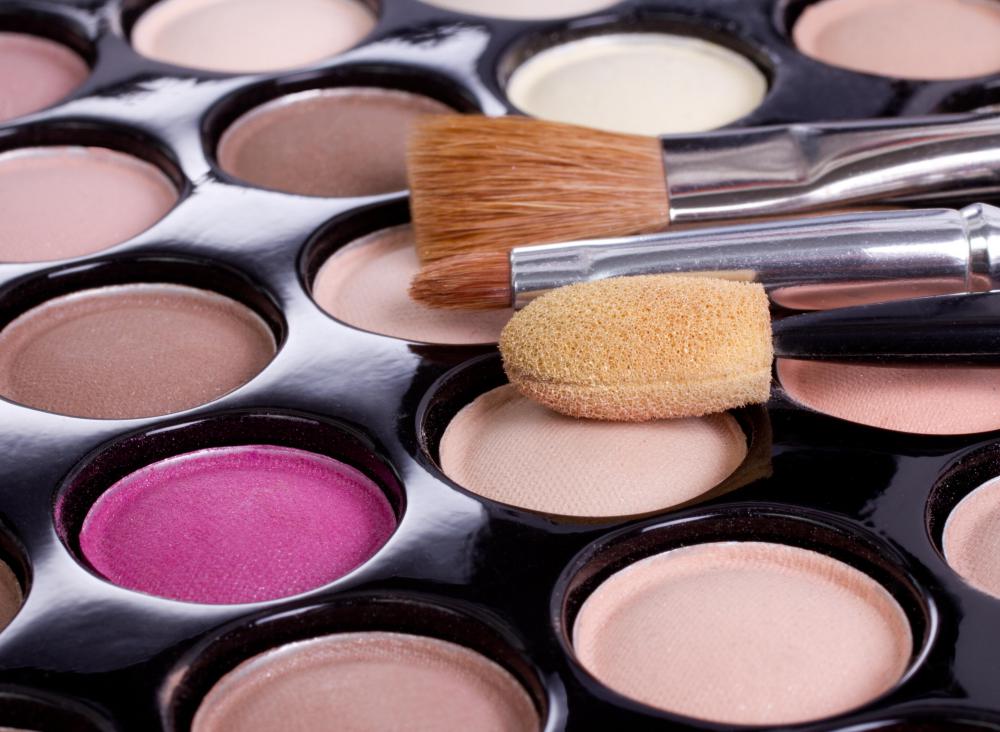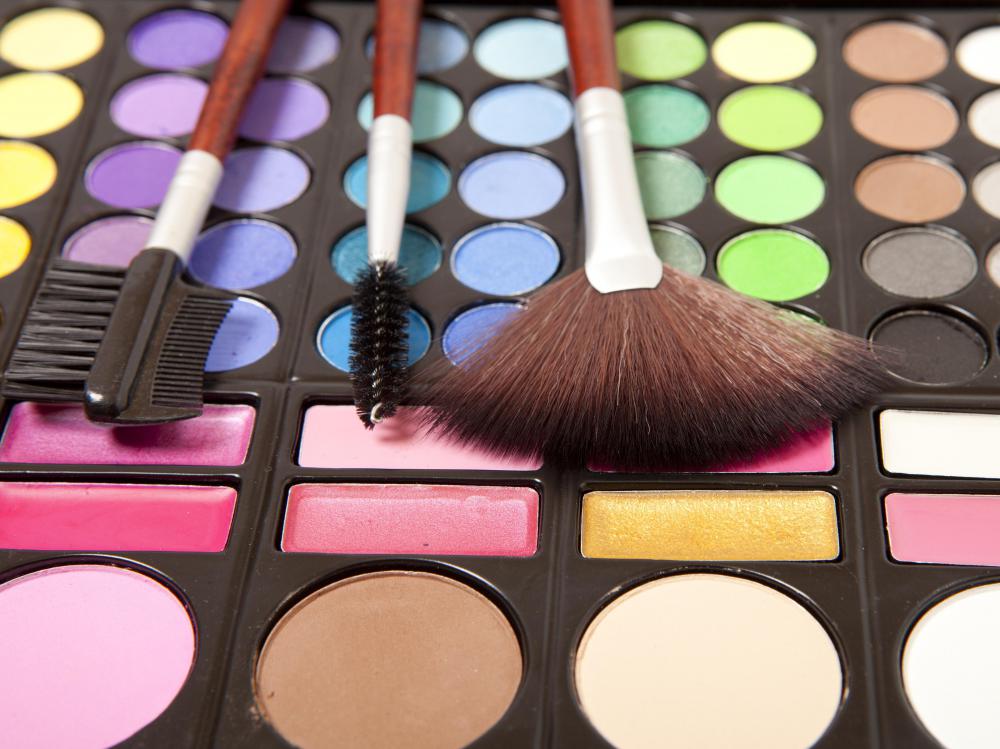At WiseGEEK, we're committed to delivering accurate, trustworthy information. Our expert-authored content is rigorously fact-checked and sourced from credible authorities. Discover how we uphold the highest standards in providing you with reliable knowledge.
Are Natural Cosmetics Really "Natural"?
There is an increasing trend among consumers to forego chemical-laden makeup in favor of more natural cosmetics. The reason for this movement is primarily based on health concerns regarding questionable ingredients. However, while consumer awareness may have advanced, labeling standards haven’t improved much since the 1930s. In fact, there is no official definition for the term "natural" in the cosmetics industry, which can make it difficult to know for certain if many natural cosmetics are, in fact, natural at all.
In the US, the Federal Food, Drug and Cosmetic Act (FD&C) of 1938 classifies a product as a cosmetic if it is intended to improve or change appearance without affecting physical structure or body systems; otherwise, it would be classified as a cosmetic and a drug. In addition to perfume, deodorant, and lotions, cosmetics include the usual array of facial makeup products. Therefore, the FD&C Act applies to liquid or powder foundation, facial powder, mascara, eye shadow, blush, and lipstick. It also extends to the individual raw materials used to manufacture the product.

It might be tempting to think that the US Food and Drug Administration, which drafted the FD&C Act, monitors the inclusion of ingredients and the general safety of cosmetics before becoming available to consumers. Unfortunately, this is not the case. In fact, cosmetic manufacturers are not required to register their products or submit any safety information about the ingredients used to make them. Combine this fact with the lack of regulatory definition for the term "natural" and manufacturers are free to label their products as natural cosmetics, even if they aren't.

So, are natural cosmetics really natural? The answer to that question is two-fold: Some are, some aren't. Learning how to distinguish between truly naturally cosmetics and those based on artificial ingredients lies in the ability to decipher labels. First, understand that almost any natural cosmetic may still contain a small portion of non-natural ingredients in the form of emulsifiers or preservatives. In fact, most reputable manufacturers make this known by stating that the product is "95%" or "99%" natural on the label.
The next thing to look for is the basis of the formula. The majority of natural cosmetics today are made from very simple materials, namely ground minerals and pigments that come from the Earth's crust. The inclusion of ingredients that force one to recall high school chemistry lessons should raise an eyebrow, however. The most common ingredients to avoid are sodium lauryl sulfate, propylene glycol, diazolidinyl urea, and parabens prefixed with "Butyl," "Methyl," or "Ethyl." In addition, synthetic fragrances can be masked by simply "fragrance" appearing on the list of ingredients, and artificial colors will be listed as FD&C or D&C followed by a number.
Natural cosmetics, on the other hand, will be void of most or all of the above ingredients. In addition to natural minerals, they are more likely to contain botanical extracts and essential oils. Finally, the order of ingredients should also be considered since this indicates total concentration in the product.
AS FEATURED ON:
AS FEATURED ON:












Discussion Comments
There is no way to completely eliminate all toxins from one's environment. But we may pick and choose which ones we expose ourselves to. (A general guideline I recommend to my patients is "If you can't pronounce it, don't buy it.)
When used properly, antioxidants like grapeseed extract and/or Vit E can help to slow the oxidation of your product, thereby preventing oils from becoming rancid. Antioxidants however, do not contain ANYTHING that will prevent, slow or stop the growth of any bacteria, fungus, yeast or mold - which is what a preservative is supposed to do.
As a mineral makeup and skincare formulator, I am frustrated to see inaccurate information passed along to consumers who in turn, will question why 'natural preservatives' are not being used in my products. While I am all for avoiding the unnecessary use of chemicals and try to maintain a 'natural' and organic approach to my product line, there is a point where effective preservation is no longer an option - it is a necessity. After all, as a consumer, would you rather have your foundation growing mold and yeast within 2 weeks, or wear a product that is safe and germ free?
Post your comments